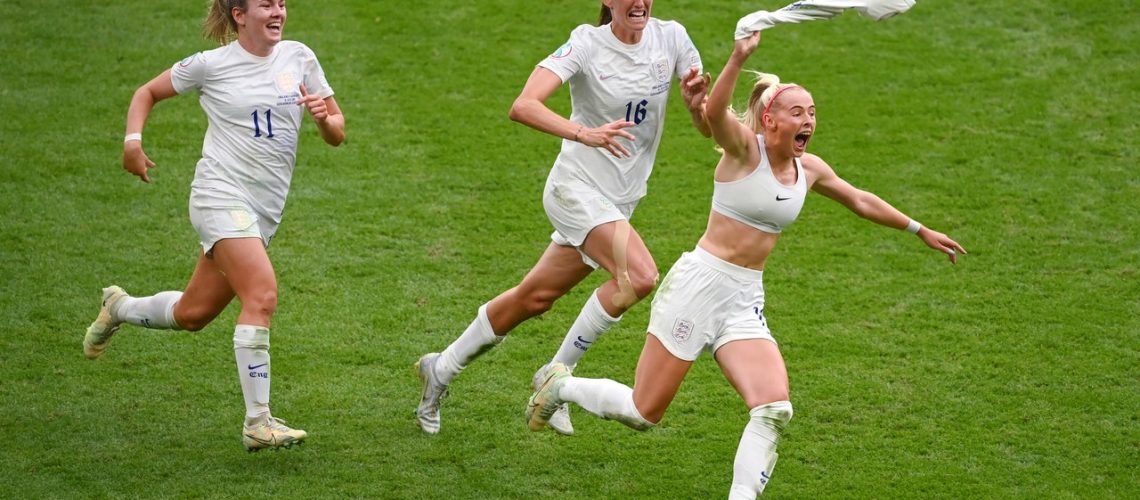It was the hundredth minute of the 2022 Euros final when a stranger turned to me, “I think we’re actually going to do it,” she half-spoke, half-whispered, nervous to tempt fate. We were tucked in the corner of a central London pub, the creaky wooden stairs and beer-soaked woolly carpet a befitting nod to the historic occasion. When the final whistle blew and confetti rained, we hugged like old friends and popped outside for a celebratory cigarette (we won! Why not?). But, stepping out of our bubble and into the street, it felt like the rest of London had no idea about the seismic shift that had taken place with the Lionesses’ victory. The city buzzed its usual tune, like it was any other day.
Even so, that win was era-defining, and as we head into the 2025 UEFA Women’s European Championships, taking place from July 2 to 27 in Switzerland, much has already changed – and not just the fact that the It-girl footwear du jour has most of us looking like we might run on at half-time. Women’s football has everyone hyped this year thanks to the Lionesses – even those who weren’t that big into football before their 2022 win. Domestic league games have reached record profitability and new broadcast deals promising to bring us closer to the action demonstrate how the world is finally waking up to the cultural power of women’s football.
There have been changes on the pitch too. Major players, like England’s Mary Earps, have hung up their boots and other legends, like French captain Wendie Renard, faced non-selection. New starlets have emerged, ready to etch their names into history alongside the familiar faces who won the country’s hearts last time out. Amid all these changes, Euros summer is upon us, huns. And it’s time to wake up and smell the pub garden.
As a devoted footy fan, this tournament feels like a long time coming – the culmination of months of anxious conversations discussing the fitness of various players and debating which vintage England top to buy. But for newer fans, football’s barrier to entry can sometimes feel needlessly high, the sport being a notorious bastion of an all-too-familiar misogyny (“Do you even know the offside rule??”).
Of course, all should be welcome in the beautiful game, prior knowledge be damned. Organisations like Her Game Too, which promotes women’s inclusion in football, have worked tirelessly in recent years, asserting the message that everyone deserves the incomparable ecstasy of watching your team score. So, with all the above in mind, here’s a guide to falling in love with the Euros this time round – even if football isn’t your thing.
On the pitch
Stripping it down to basics, the Euros are a three week-long tournament which sees Europe’s top 16 teams compete in rounds of knock out football until a winning team is decided in the final. While defending champions England enter the competition with a target on their back, underdogs Wales will look to battle their way to escape the group stages in an historic first major tournament.
















